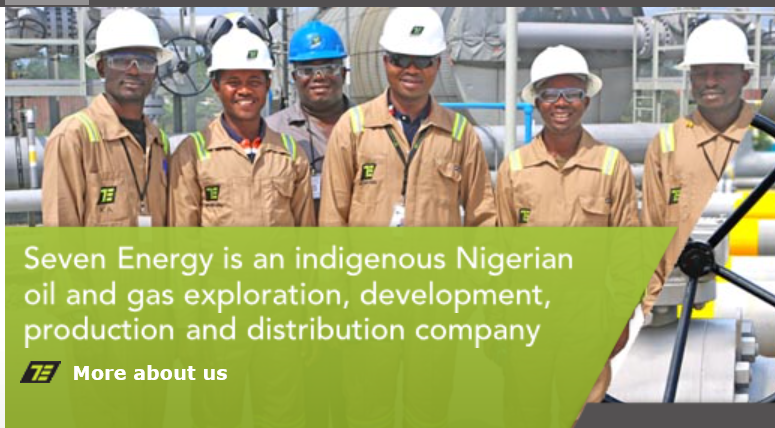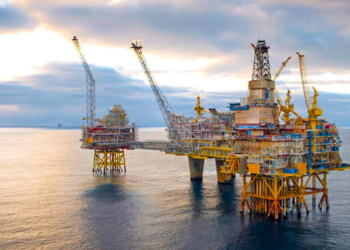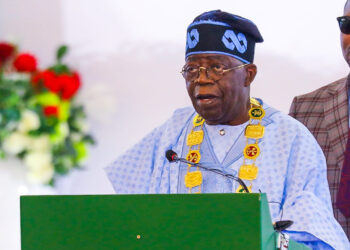Reuters: Nigeria’s Seven Energy said on Tuesday it had secured $255 million from new backers, including Singapore state investor Temasek, to help fund its plan to build up a gas business in the West African country.
Seven Energy, an indigenous Nigerian company, plans to buy gas fields and related infrastructure and pipelines to sell gas into Nigeria’s domestic market for use in power generation and industrial consumption. It has already invested $1 billion in related projects in south-eastern Nigeria. See full press release below;
Seven Energy International Limited (“Seven Energy” or the “Group”), the indigenous integrated oil and gas development, production and gas distribution company with interests in Nigeria, is pleased to announce that it has secured US$255 million of new equity capital, enabling the Group to further develop gas supply opportunities in Nigeria’s domestic energy market.
Temasek, the Singapore investment company, has committed US$150 million, the International Finance Corporation (“IFC”), a member of the World Bank Group, has committed US$75 million, and the IFC African, Latin American, and Caribbean Fund (“IFC ALAC Fund”) has committed US$30 million. The investments will be in two tranches, the timing of which is subject to the satisfaction of certain conditions in the investment agreements.
The institutions are investing in Seven Energy’s irredeemable convertible loan notes which bear no coupon and are akin to equity capital. On a converted and fully diluted basis, on full satisfaction of the investment agreements, the new investors would account for approximately 26% of the equity capital of the Group.
This new equity capital will assist Seven Energy in the development of its growing portfolio of assets in Nigeria, where the Group is focusing on the development of upstream reserves and resources and gas infrastructure to provide gas to the domestic market for power generation and industrial consumption.
Through its gas processing, distribution and marketing subsidiary, Accugas Limited (“Accugas”), and its recent acquisition of the East Horizon pipeline, the Group has to date invested approximately US$1 billion in south-eastern Nigeria. This reinforces the Group’s position as a leading integrated gas company in Nigeria. The Group aims to capture the growing demand for gas and power as Nigeria’s industrial base grows and the liberalisation of the power sector spurs further investment in generating capacity.
The Group has long-term take-or-pay gas sales agreements in place to sell over 1.4 trillion cubic feet of gas. A 10 year contract to supply 43.5 million cubic feet of gas per day (“MMcfpd”) to Ibom Power; a 20 year contract to supply 131 MMcfpd to the federally-owned power plant at Calabar; and a 20 year contract to supply 25 MMcfpd to a cement plant in the Calabar area, increasing to 50 MMcfpd upon the anticipated expansion of the plant. The two power stations, which will have a combined installed capacity of approximately 750 MW when fully commissioned, will add an additional 20% of capacity to Nigeria’s current operating electricity generation capacity.
In collaboration with its customers and other stakeholders, Seven Energy is working to link its infrastructure together to establish a 300 km gas ring of 24-inch and 18-inch high pressure pipelines in Akwa Ibom and Cross Rivers states with total distribution capacity of 600 MMcfpd, capable of supplying the demand centres of Calabar, Uyo and Ikot Abasi, and giving access to Port Harcourt to the west. In addition, at Ekid, near the ExxonMobil Qua Iboe terminal, the Group owns a gas plant for treating and processing 200 MMcfpd of gas which is currently supplied from the Uquo Field where the Group is the 100% funding partner.
With this significant capacity built into its processing and distribution infrastructure, the Group is well-positioned to provide long-term gas supply for power generation as well as lower-cost fuel to local industries. The Group is currently in active discussions with a number of current, planned and potential off-takers with regards to future gas supply agreements.
The relative lack of investment in gas development for the domestic economy has resulted in most Nigerian industry and power generation relying heavily on imported diesel and fuel oil, which are significantly more expensive than locally-sourced natural gas.


















